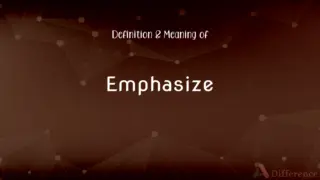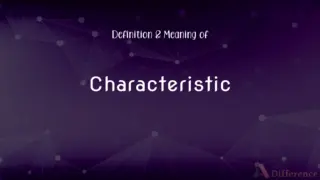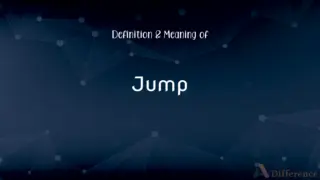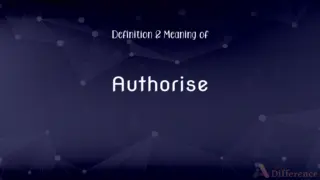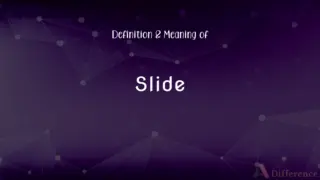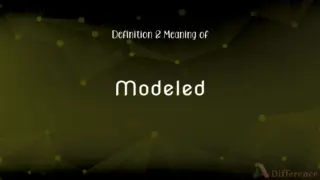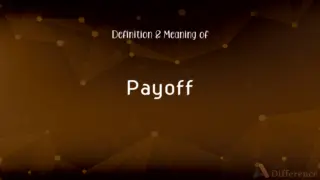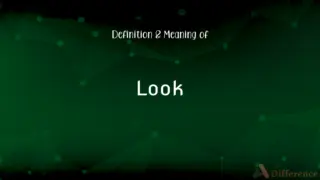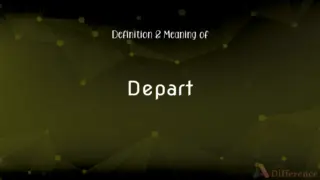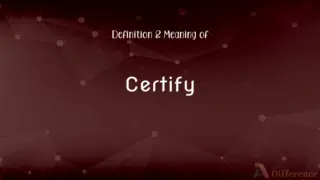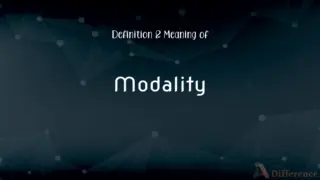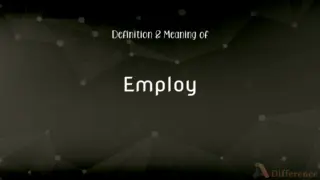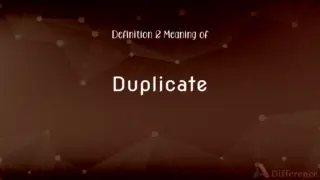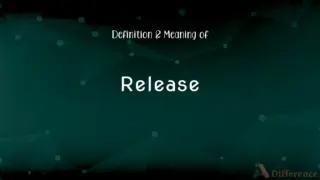Premiss Definition and Meaning
By Tayyaba Rehman & Fiza Rafique — Updated on March 5, 2024
A premiss is a statement or idea that serves as the basis for an argument or from which a conclusion is drawn. e.g., The main premiss of his argument was flawed.
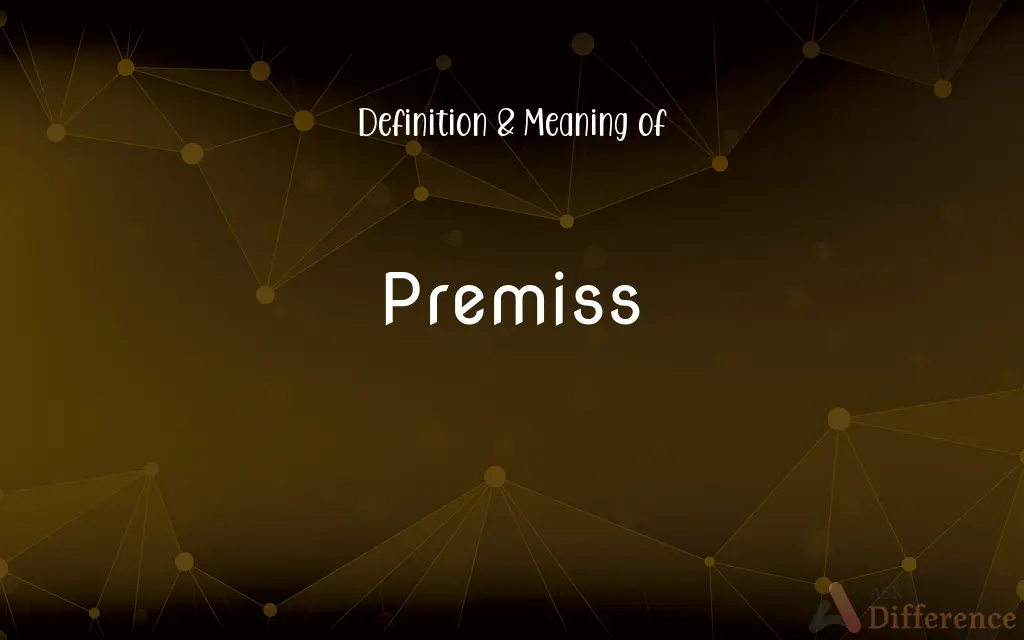
Table of Contents
Premiss Definitions
A basic assumption or belief forming the basis of an argument.
The debate's premiss was intriguing.
A proposition supporting or helping to support a conclusion.
Each premiss led to the next logical step.
A foundational statement used to support a conclusion.
His essay began with a clear premiss.
A premise or starting point of reasoning.
The premiss of her thesis was challenging.
The first step in a logical argument.
He stated his premiss confidently.
An underlying principle or theory.
The research was based on a controversial premiss.
An initial proposition from which further logic is derived.
The first premiss was universally accepted.
An idea or statement taken as a given.
The premiss was accepted without question.
Alternative spelling of premise
Premise.
A statement that is assumed to be true and from which a conclusion can be drawn;
On the assumption that he has been injured we can infer that he will not to play
Take something as preexisting and given
The foundation of a logical structure.
Her argument's premiss was well-formulated.
A basic assertion that forms the groundwork for a theory.
The scientific theory relied on a strong premiss.
Premiss Snonyms
Proposition
A statement or assertion that expresses a judgment or opinion.
The research paper was based on the proposition that sleep affects memory.
Assumption
A thing that is accepted as true or as certain to happen, without proof.
The theory makes a basic assumption about human nature.
Postulate
Suggest or assume the existence, fact, or truth of something as a basis for reasoning, discussion, or belief.
His theory postulates a universe that is infinitely old.
Foundation
An underlying basis or principle.
The study's conclusions are built on a shaky foundation of unverified data.
Theorem
A general proposition not self-evident but proved by a chain of reasoning; a truth established by means of accepted truths.
The Pythagorean theorem is a fundamental relation in Euclidean geometry.
Hypothesis
A supposition or proposed explanation made on the basis of limited evidence as a starting point for further investigation.
Their hypothesis was that the virus would not survive high temperatures.
Axiom
A statement or proposition which is regarded as being established, accepted, or self-evidently true.
It is an axiom in philosophy that existence precedes essence.
Basis
The underlying support or foundation for an idea, argument, or process.
The whole argument is based on a basis of conjectural thinking.
Principle
A fundamental truth or proposition that serves as the foundation for a system of belief or behavior or for a chain of reasoning.
The basic principles of democracy are justice, equality, and freedom.
Ground
The basis or foundation on which an argument, belief, or action is grounded.
His argument had no ground in scientific evidence.
Premiss Idioms & Phrases
Underlying premiss
The basic assumption that forms the foundation of a theory or argument.
The underlying premiss of her argument was that all humans are inherently good.
On the premiss of
Based on the fundamental assumption or belief.
The whole theory was built on the premiss of relativity.
Challenge the premiss
To question the basic assumption or proposition of an argument.
His latest book challenges the premiss that economic growth leads to happiness.
False premiss
An incorrect or mistaken assumption that forms the basis of an argument or belief.
Their decision was based on a false premiss, leading to unexpected complications.
Questionable premiss
An assumption or proposition that is doubtful or uncertain.
The researcher’s conclusion was based on a questionable premiss.
Premiss and conclusion
The fundamental assumption and the resulting deduction in an argument or theory.
In logic, it’s important to clearly define your premiss and conclusion.
Accept on the premiss
To agree with or consent to a particular assumption or proposition.
He accepted on the premiss that the data provided was accurate.
Premiss of the debate
The initial assumption or proposition upon which a debate is based.
The premiss of the debate was that urbanization leads to cultural homogenization.
Premiss of equality
The foundational assumption that all individuals are equal in some respect.
The legal system operates on the premiss of equality before the law.
Premiss of the study
The foundational assumption upon which a research study or investigation is based.
The premiss of the study was that regular exercise improves mental health.
Build upon a premiss
To develop a theory, argument, or discussion based on a particular assumption.
His entire thesis was built upon the premiss that technology shapes society.
Implicit premiss
An assumption that is implied or understood without being directly stated.
There was an implicit premiss in her speech about the benefits of education.
Argue from the premiss
To make a case or present an argument starting from a specific basic assumption.
She argued from the premiss that climate change is influenced by human activity.
Premiss for discussion
The initial assumption or proposition that forms the basis for a discussion or conversation.
The premiss for our discussion was that technology has more positive than negative effects.
Logical premiss
An assumption that is based on logic or reasoning.
His conclusion was drawn from a logical premiss, yet it was still debated.
Fundamental premiss
The basic, core assumption that underpins a theory, argument, or belief.
The fundamental premiss of her lecture was the importance of preserving biodiversity.
Contradictory premiss
An assumption that is in direct opposition to another assumption or proposition.
His argument fell apart due to the use of contradictory premisses.
Controversial premiss
An assumption that is the subject of debate or disagreement.
The book’s controversial premiss sparked a lot of discussions.
Premiss of the argument
The basic assumption that forms the starting point of an argument.
The premiss of his argument was that all societies evolve in a similar manner.
Unstated premiss
An assumption that is not explicitly expressed but is required for an argument to hold.
The effectiveness of his point depended on an unstated premiss.
Premiss Example Sentences
His speech was built on a solid premiss.
They discussed the premiss of the philosophical argument.
She questioned the validity of the premiss.
He built his hypothesis on an interesting premiss.
They evaluated the premiss for logical consistency.
He challenged the premiss of the traditional view.
The scientist presented a new premiss for consideration.
The classroom debate focused on the premiss of equality.
The premiss of his theory was later proved.
The novel's premiss was both unique and captivating.
The entire argument hinged on that one premiss.
She explained the premiss before presenting her evidence.
The premiss was simple but had profound implications.
Her essay explored the premiss in depth.
She used a historical event as her premiss.
Common Curiosities
What is a stressed syllable in premiss?
The stressed syllable in "premiss" is the first one: pre-.
How is premiss used in a sentence?
Example: "His argument was based on the premiss that all humans are fundamentally rational."
How many syllables are in premiss?
There are two syllables in "premiss."
How do we divide premiss into syllables?
"Premiss" is divided into syllables as "pre-miss."
What is the root word of premiss?
The root word of "premiss" is the Latin "praemissus."
What is the verb form of premiss?
"Premiss" does not have a direct verb form as it is a noun.
What is the pronunciation of premiss?
Premiss is pronounced as /ˈprɛm.ɪs/.
Why is it called premiss?
It's called "premiss" because it originates from the Latin word "praemissus," meaning "sent before." It refers to a statement or idea that is assumed to be true and forms the basis for an argument.
Is premiss an adverb?
No, "premiss" is not an adverb.
Is premiss a noun or adjective?
"Premiss" is a noun.
Is premiss a vowel or consonant?
"Premiss" is a word, not a single vowel or consonant.
Is the word premiss imperative?
No, "premiss" is a noun and cannot be imperative.
Which determiner is used with premiss?
Determiners like "a," "the," or "this" can be used with "premiss."
What part of speech is premiss?
"Premiss" is a noun.
Is premiss a collective noun?
No, "premiss" is not a collective noun.
Is the premiss term a metaphor?
"Premiss" can be used metaphorically in some contexts.
Which vowel is used before premiss?
The use of a vowel before "premiss" depends on the context and the preceding word.
What is the opposite of premiss?
The opposite of "premiss" could be "conclusion" or "result."
Is premiss an abstract noun?
Yes, "premiss" is an abstract noun, as it refers to an idea or concept.
Is premiss a negative or positive word?
"Premiss" is neutral; it is neither inherently negative nor positive.
Which conjunction is used with premiss?
Conjunctions such as "and," "but," or "or" can be used with "premiss."
What is another term for premiss?
Another term for "premiss" is "premise."
Is premiss a countable noun?
Yes, "premiss" is a countable noun.
Is the word premiss Gerund?
No, "premiss" is a noun and not a gerund.
Is the word “premiss” a Direct object or an Indirect object?
"Premiss" can be a direct object, as in "He explained his premiss."
Which preposition is used with premiss?
Prepositions like "based on" or "derived from" can be used with "premiss."
Which article is used with premiss?
The articles "the," "a," or "an" can be used with "premiss," depending on the context.
What is the singular form of premiss?
The singular form is "premiss."
What is the plural form of premiss?
The plural form is "premisses."
Share Your Discovery
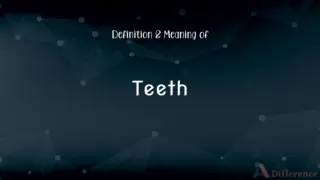
Previous Term
Teeth Definition and Meaning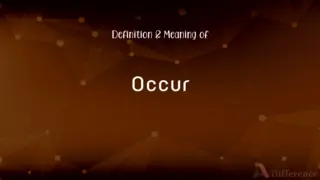
Next Term
Occur Definition and MeaningAuthor Spotlight
Written by
Tayyaba RehmanTayyaba Rehman is a distinguished writer, currently serving as a primary contributor to askdifference.com. As a researcher in semantics and etymology, Tayyaba's passion for the complexity of languages and their distinctions has found a perfect home on the platform. Tayyaba delves into the intricacies of language, distinguishing between commonly confused words and phrases, thereby providing clarity for readers worldwide.
Co-written by
Fiza RafiqueFiza Rafique is a skilled content writer at AskDifference.com, where she meticulously refines and enhances written pieces. Drawing from her vast editorial expertise, Fiza ensures clarity, accuracy, and precision in every article. Passionate about language, she continually seeks to elevate the quality of content for readers worldwide.







